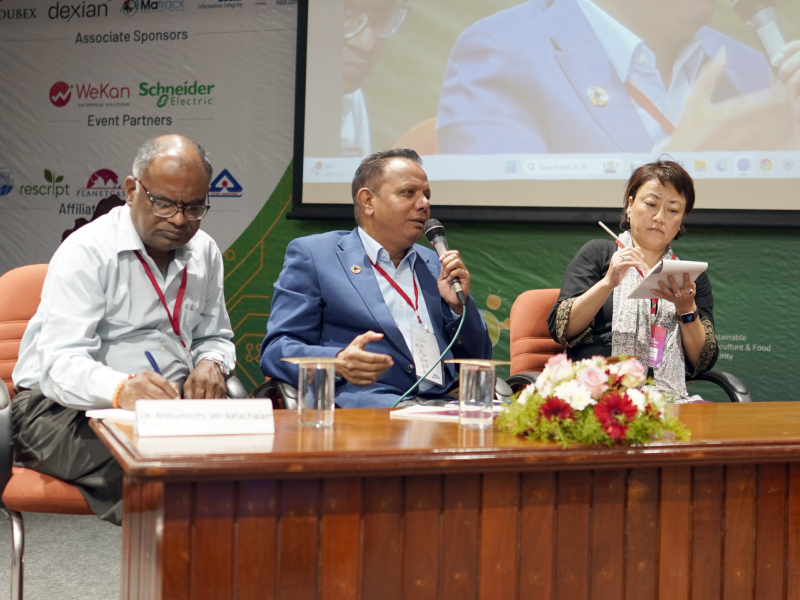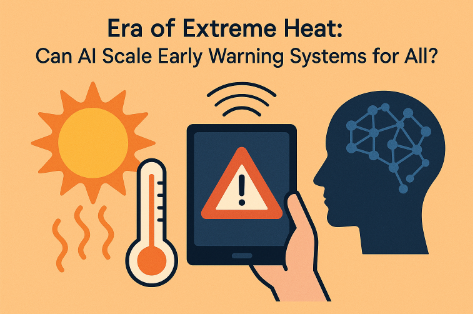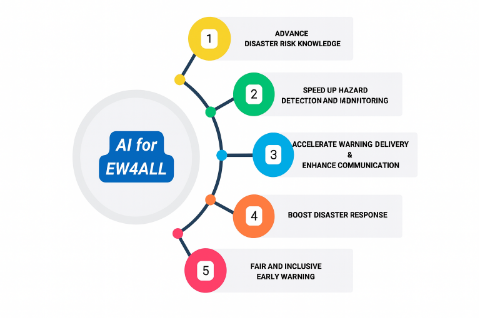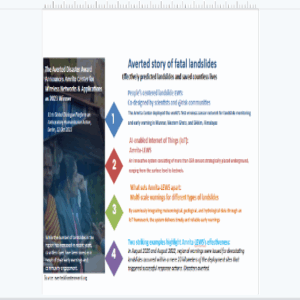Programs
- M. Tech. in Automotive Engineering -Postgraduate
- Master of Physician Associate (M.PA) – (Medicine, Surgery) 2 Year -Postgraduate

Dr. Sanjay Srivastava (Expert in Disaster Risk Reduction (DRR) and Climate Resilience; Ex-Chief of Disaster Risk Reduction, ICT & Disaster Risk Reduction Division, UN ESCAP) examined the mounting threat of extreme temperatures and the urgent need for improved early warning systems during his keynote at ICSRF 2025. He highlighted how AI could bridge data gaps, enhance forecast accuracy, and enable multi-lingual emergency alerts.

Unprecedented Global Temperatures: The Impact
The planet is surpassing past heat records at an alarming rate. The year 2024 was the hottest on record, continuing a decade-long trend of unprecedented global temperatures. All of the past ten years now rank among the hottest ever recorded. This translates into more heat in coupled ocean and atmosphere systems, fueling stronger tropical cyclones in the Bay of Bengal and Arabian Sea.
Prediction Challenges
Tropical cyclones that intensify rapidly are difficult to predict, leading to forecast errors. Rapid intensification, unusual tracks, and increased complexity result in higher casualties and losses. For example, Cyclone Titli (2018) triggered landslides and flooding despite precise early warnings, showing the limitations of current systems.
EW4All: Can Artificial Intelligence be a Game Changer?
The UN initiative ‘Early Warnings for All (EW4All)’ by 2027 seeks to extend protection globally. AI holds potential to strengthen the 4 pillars of early warning: risk knowledge, forecasting and detection, warning dissemination, and response. By addressing data gaps and improving predictive analytics, AI can make systems more effective and inclusive.
Challenges and Considerations
AI is a complementary tool, but challenges remain. Issues of bias, ethics, trust, and data inequality must be addressed. False alarms can erode public confidence, while resource limitations in vulnerable regions hinder deployment. Transparent algorithms and equitable innovation are critical.
Regional Cooperation
The Regional Specialized Meteorological Centre (RSMC) at the India Meteorological Department, under the Panel on Tropical Cyclones, coordinates forecasting across the Northern Indian Ocean. Collaborative research with its 13 member states is integrating AI into prediction systems, such as monitoring Tropical Cyclone Heat Potential (TCHP). Such innovations show how regional cooperation can strengthen EW4All in cyclone-prone areas.

Amrita LEWS: Averted Story of Fatal Landslides
Amrita Center for Wireless Networks & Applications was recognized with the prestigious Averted Disaster Award in 2023 for its pioneering work in landslide monitoring and early warning. This award highlights Amrita’s impact in protecting vulnerable communities through advanced IoT-enabled disaster preparedness solutions.

Key Highlights: